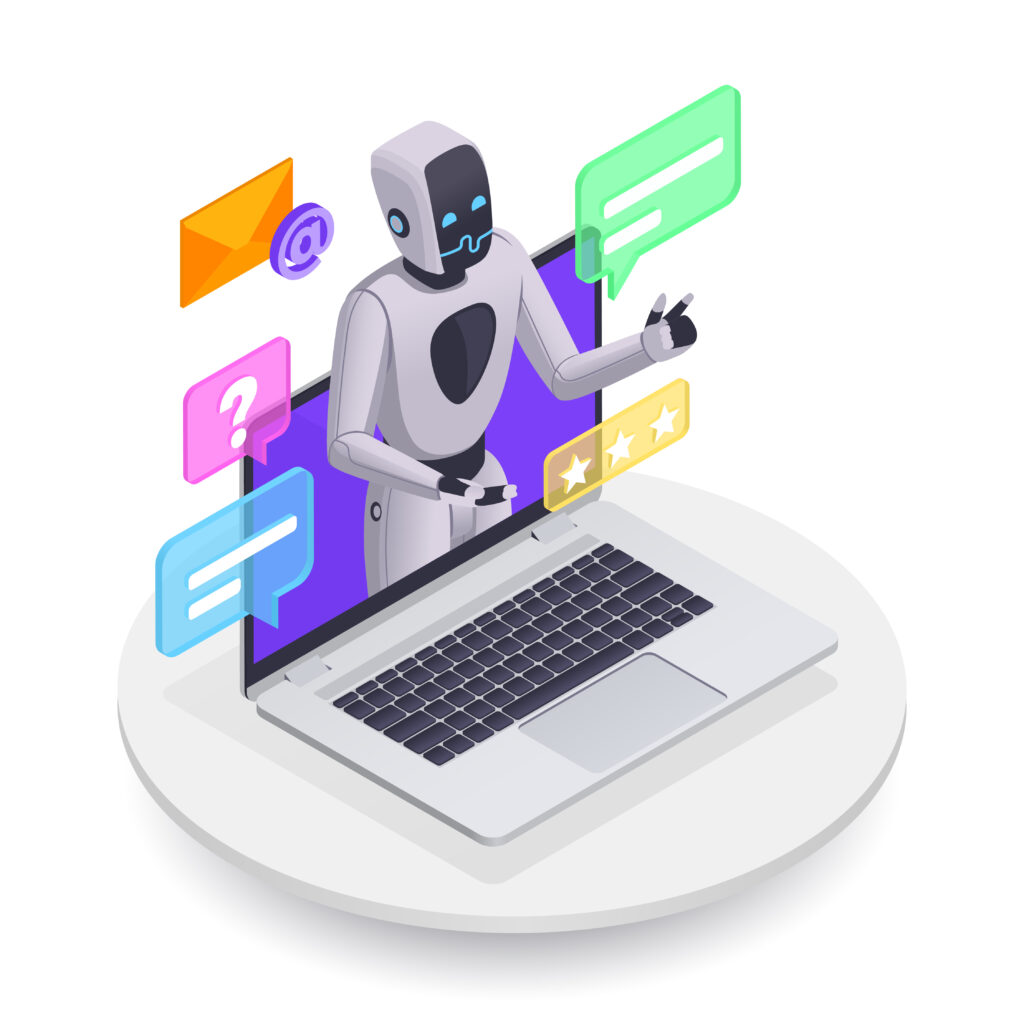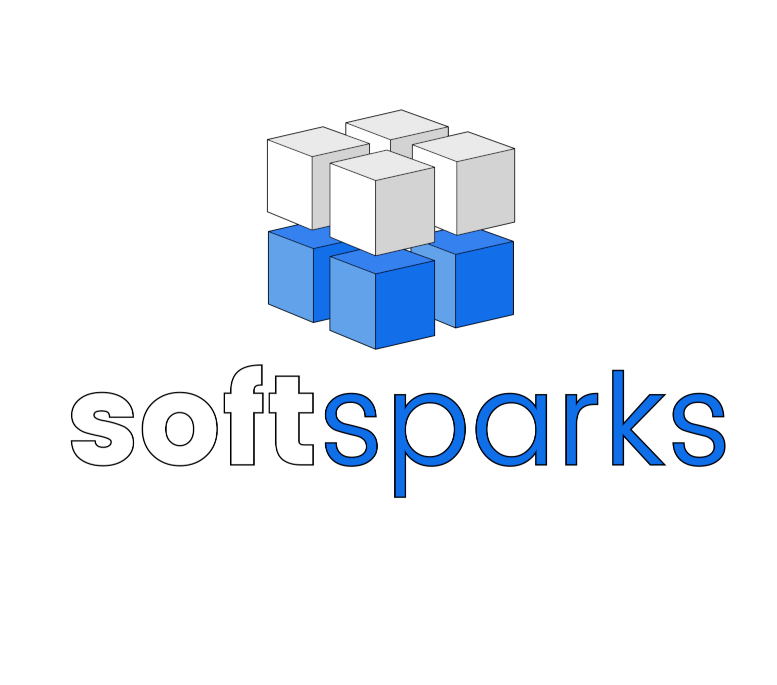Are you wondering how SEO is changing due to artificial intelligence? Or are you afraid that traffic to your website will disappear completely because Google and new AI search engines suddenly work completely differently? The latest analyses show: Although pure traffic to websites could decrease, the Quality of leads that are directed to the website by an AI is MUCH higher.
Table of contents

How AI is changing search behavior
Users ask more complex questions
The Search behavior on the internet is changing drastically. Instead of traditional search engines such as Google, more and more people are using AI to get direct answers to their questions. More and more people are no longer just typing individual terms into the search bar. They are asking entire questions, often in the same way they would speak to a real person. AI systems understand these complex queries much better than traditional search engines. This means you can search more specifically for solutions or explanations without artificially simplifying your question. This makes search queries longer and more specific, which also places completely new demands on content optimization.
Answers are expected directly, no longer just links
People used to click through many search results to find the right answer. Today, users expect to receive a specific answer straight away - preferably in the search overview. AI helps to extract relevant information from websites and display it immediately. This changes expectations: People no longer want to do their own research, they want to know what's going on immediately. For your content, this means that it must be clear, precise and immediately helpful.
Voice search and chatbots are gaining in importance
Many people now use voice assistants or chatbots to ask questions. This makes search behavior even more natural and conversational. You simply speak into your smartphone or chat with a bot instead of formulating a traditional search query. AI makes it possible for these systems to understand even complex queries and provide suitable answers. For website operators, this means that content should be formulated in such a way that it also makes sense in conversations and is easy to understand.
AI-supported suggestions influence the search
As you type, the search engine suggests suitable terms or questions. These suggestions are based on AI, which recognizes trends and knows what other users often search for. This influences how you formulate your query and which topics come into focus. AI therefore actively influences search behavior and ensures that search trends change more quickly. For you as a content creator, it is important to keep an eye on these suggestions and adapt your content accordingly.
SEO strategies for Google and AI search engines
Optimizing content for AI algorithms
Many people are wondering how content needs to be structured today so that it can be understood and displayed by AI search engines. AI algorithms not only analyze keywords, but also contexts, topics and user intentions. Write in such a way that your texts answer real questions and make connections clear. Avoid unnecessary filler words and focus on the essentials. Use headings, paragraphs and lists to make it easier for AI to structure your content. Make sure that your content is up-to-date and regularly revised, as AI prefers fresh and relevant information.That's why it's now more important than ever to design your website so that YOUR website is displayed in the AI's response. In this article, you will learn how AI influences search behavior, which SEO strategies really count now and how to optimally prepare your content for Google and AI search engines.
Using structured data
Structured data helps search engines to better understand the content of your site. They give AI a clear framework of what can be found on your page. With markups such as Schema.org, for example, you can specify whether it is a recipe, FAQ or product. This increases the chance of being displayed in special search result boxes or in direct answers. Think about which structured data suits your content and use it in a targeted manner. Many content management systems offer plugins or simple options for inserting markups.
Formulate answers clearly and concisely
AI search engines specifically look for clear, short answers. Long nested sentences or rambling explanations make it difficult to find the relevant information. Therefore, formulate your most important statements right at the beginning of a paragraph or page. Divide complex topics into individual, easy-to-understand sections. Use clear language and avoid unnecessary jargon if it is not absolutely necessary. This will ensure that both users and AI get the answer to their question quickly.
Strengthen E-A-T (expertise, authority, trustworthiness)
Google and many AI search engines are paying more attention to E-A-T: expertise, authority and trustworthiness. This means: Show that you know your subject. Publish well-founded, well-researched content and link to reputable sources. Include an imprint and an "About me" page to create transparency. If possible, work with experts or have content checked. Update your content regularly so that it is always up to date. This will strengthen your reputation with users and search engines alike.
Differences between classic and AI-based search
AI search engines often provide direct answers instead of lists of links
With traditional search engines, you received a list of links after a query that you had to click through. AI-based search engines work differently: They provide you directly with the answer to your question, usually right at the top of the search result. This saves time because you don't have to visit different pages first. For you as a content creator, this means that your content should be designed in such a way that it can be used as a direct answer. Clear, concise wording and structured information are crucial here so that the AI selects and displays your page.
Long-tail keywords are becoming more important
In the past, the focus was often on short, general search terms. This has changed dramatically with AI: Users are asking longer and more specific questions, known as long-tail keywords. These search queries are often very specific and individual. AI search engines understand the context better and provide suitable answers even for complex questions. You should therefore target your content at such longer search phrases. This means that you answer specific questions and cover niches that traditional search engines have often overlooked.
Interactive search experiences instead of static results
With AI, the search becomes much more interactive. Instead of just seeing a list of links, you can communicate directly with the search engine or a chatbot, ask questions and refine your search. The search experience feels more like a conversation. For your content, this means that it should be designed to work in a conversational context. Remember to answer possible follow-up questions and structure content in such a way that it can be found and understood quickly in interactive search processes. No-code platforms are tools that allow you to create digital processes and automations without having to program them yourself.
Tips for practice
Analyze search trends regularly
Many people are unsure which topics and terms are currently in demand. Search trends are constantly changing thanks to AI, because users are always asking new questions and search engines dynamically adapt their suggestions. Use tools such as Google Trends or the trend functions in SEO tools to regularly check what people are really searching for. This allows you to identify topics early on and adjust your long-tail keywords before others jump on them. This helps you to stay visible with your content and react quickly to changes in search behavior.
Check your own content for comprehensibility
With AI, users often search the way they speak - clearly and directly. Therefore, regularly check whether your content is easy to understand. Read your texts out loud or use tools that assess readability. Make sure that you explain complicated terms or avoid them if they are not absolutely necessary. Divide longer sections into short, clear parts and use lists or subheadings. This will ensure that your content can be quickly understood and used by both humans and AI systems.
Test new AI tools for SEO
There are more and more AI-supported tools that can help you with search engine optimization. Many people wonder which of them are really useful. Try out different applications, for example for keyword research, content optimization or creating meta descriptions. Many tools offer free trial periods or basic functions at no cost. This allows you to find out which tools are best suited to your way of working. Keep up to date with new developments, as the tools are constantly being developed and often offer practical functions that save you time in everyday life.
Stay flexible
SEO is constantly changing due to AI. What works today may be outdated tomorrow. That's why it's important that you don't rely too much on old strategies. Be open to change and adapt your methods regularly. Observe how search engines and requirements evolve. Only if you remain flexible can you react quickly to new trends and secure your visibility in the search results.
Trying out new approaches
Many SEO tactics that used to bring success are no longer sufficient today. AI search engines have a different focus and often evaluate content completely differently. Dare to test new formats and tools, even if they are unfamiliar. This could mean, for example, working more with AI-supported applications, trying out new content formats or structuring your content differently. Those who dare to try something new can gain an advantage before the competition adapts.
Keeping an eye on user behavior
AI is constantly changing the way people search. Users ask different questions, expect faster answers and use new functions such as voice search or interactive chats. Regularly analyze how the behavior of your target group is developing. Use tools to monitor search queries and trends. Adapt your content and SEO strategies accordingly so that you can continue to provide the right answers in the future. If you understand user behavior, your content will remain relevant.

Please let me know if you're looking for an article writer for your weblog.
You have some really good articles and I believe I would
be a good asset. If you ever want to take some of the
load off, I'd love to write some material for your blog in exchange for a link back to
mine. Please send me an email if interested.
Thank you!
Wow, awesome weblog structure! How lengthy have you been running a blog for?
you made running a blog glance easy. The whole
look of your web site is wonderful, let alone the content!
Pingback: Effective AI SEO marketing strategies for companies
Pingback: Effective YouTube SEO strategies for AI-optimized videos